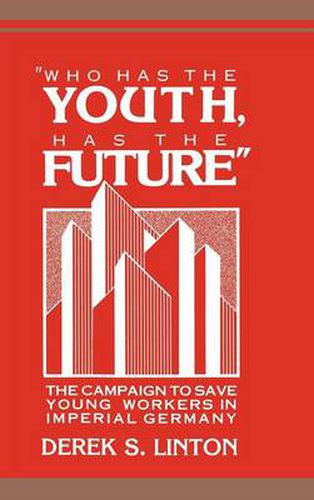Readings Newsletter
Become a Readings Member to make your shopping experience even easier.
Sign in or sign up for free!
You’re not far away from qualifying for FREE standard shipping within Australia
You’ve qualified for FREE standard shipping within Australia
The cart is loading…






Virtually all discussions of the problematic character of youth and society in twentieth-century Germany begin with the middle class Wandervogel and end with the Hitler Youth. In this revisionist study Derek S. Linton argues that youth emerged as an important social problem around 1900 without any reference to the Wandervogel. Instead, fears of socialism, urban disorder, mass culture, and youthful independence prompted liberal social reformers to constitute young workers as a social problem. Linton traces the ‘natural history’ of this social problem from recognition to institutional reform. He especially explores such institutions as mandatory evening vocational schools and adult sponsored youth clubs designed to integrate young workers into Wilhelmine society. Based on his analysis of youth reform, Linton ends by discussing some of the debates between historians over the reformability of Imperial Germany and relations between the Empire and the Nazi regime.
$9.00 standard shipping within Australia
FREE standard shipping within Australia for orders over $100.00
Express & International shipping calculated at checkout
Virtually all discussions of the problematic character of youth and society in twentieth-century Germany begin with the middle class Wandervogel and end with the Hitler Youth. In this revisionist study Derek S. Linton argues that youth emerged as an important social problem around 1900 without any reference to the Wandervogel. Instead, fears of socialism, urban disorder, mass culture, and youthful independence prompted liberal social reformers to constitute young workers as a social problem. Linton traces the ‘natural history’ of this social problem from recognition to institutional reform. He especially explores such institutions as mandatory evening vocational schools and adult sponsored youth clubs designed to integrate young workers into Wilhelmine society. Based on his analysis of youth reform, Linton ends by discussing some of the debates between historians over the reformability of Imperial Germany and relations between the Empire and the Nazi regime.